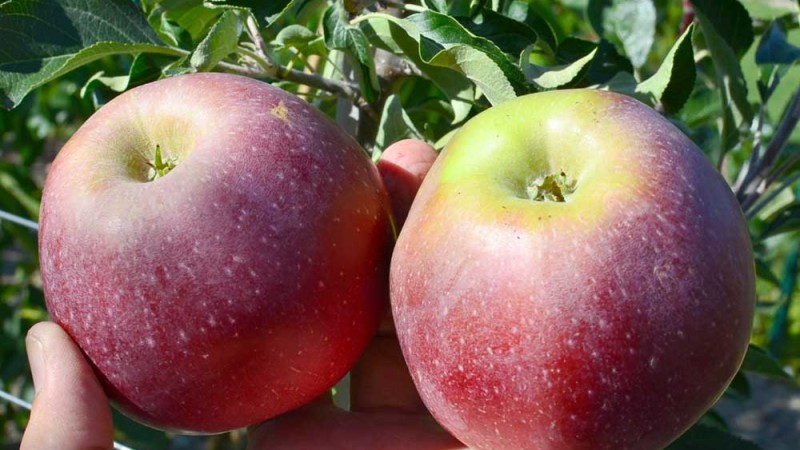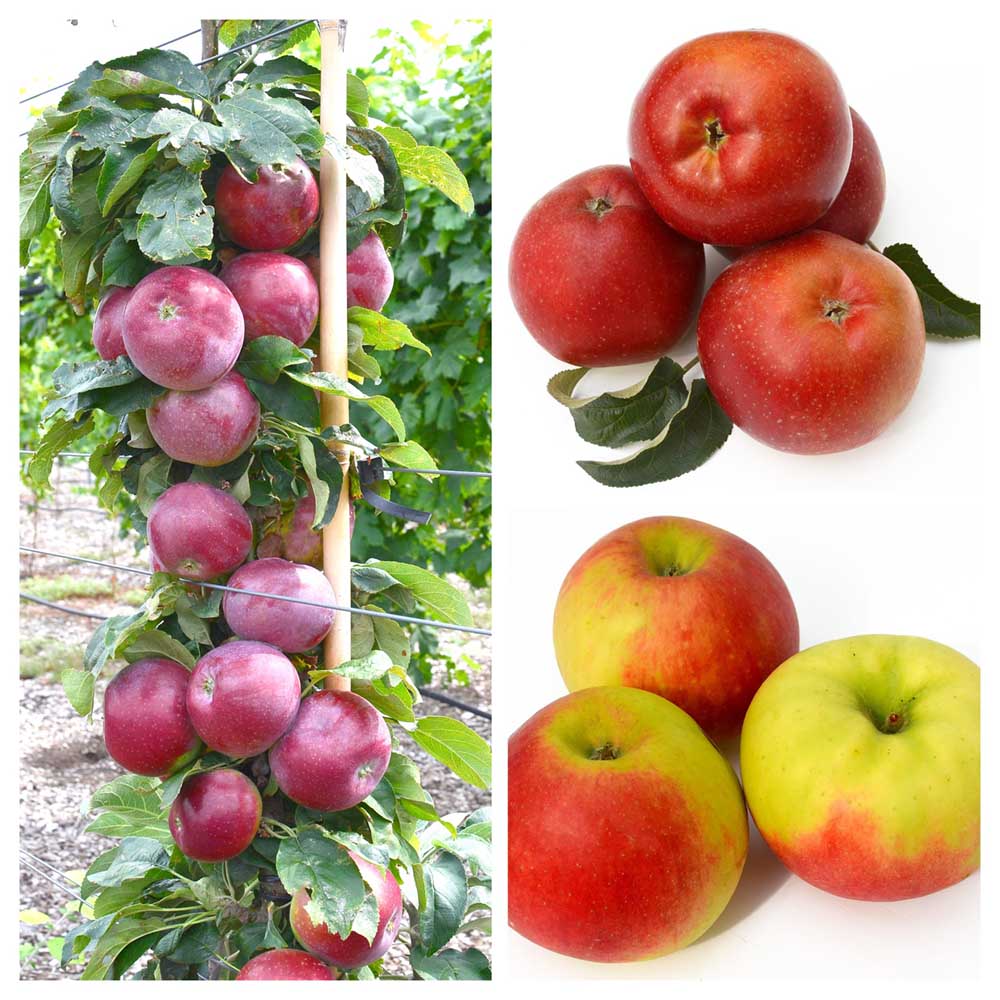
 Skladovateľnosť zimných jabĺk je jedna z najdôležitejších vlastností jabloní, ak nie najdôležitejšia, na ktorú sa prihliada pri výbere odrody pre pestovanie v sade alebo domácej záhrade. Dlhé zimné obdobie na území Ruska vždy nútilo obyvateľstvo vytvárať si zásoby jedla ktoré boli trvanlivé po celú zimu a to vrátane plodov rastlín. Preto sa aj šľachtenie jabloní na tomto území sústredilo na získanie dlhodobo skladovateľných plodov ktoré ani časom príliš nestrácajú kvalitu.
Skladovateľnosť zimných jabĺk je jedna z najdôležitejších vlastností jabloní, ak nie najdôležitejšia, na ktorú sa prihliada pri výbere odrody pre pestovanie v sade alebo domácej záhrade. Dlhé zimné obdobie na území Ruska vždy nútilo obyvateľstvo vytvárať si zásoby jedla ktoré boli trvanlivé po celú zimu a to vrátane plodov rastlín. Preto sa aj šľachtenie jabloní na tomto území sústredilo na získanie dlhodobo skladovateľných plodov ktoré ani časom príliš nestrácajú kvalitu.
Hlavným zameraním Všeruského vedecko-výskumného ústavu ovocných kultúr (VNIISPK) v meste Orel bolo a stále je šľachtenie vysoko hodnotených zimných odrôd jabloní s viacnásobnou rezistenciou voči hubovým chorobám na polygénnom základe. Začiatok činnosti tohoto inštitútu sa datuje do roku 1946, kedy A.V. Parshin zasial malé množstvo semien získaných z voľného opelenia pôvodných Mičurinových odrôd odrodami pochádzajúcimi zo stredného Ruska ktoré boli viac mrazuvzdorné. Odvtedy šľachtenie neprerušene pokračuje a dôvodom je stále neutíchajúca požiadavka na nové odrody zimných jabloní plodiacich dlhodobo skladovateľné jablká schopné udržať v priebehu skladovania kvalitatívne parametre. To znamená chuť, fabu, konzistenciu a obsh biologicky aktívnych látok. V priebehu času sa totiž požiadavky na kvalitu odrôd jabloní menia a šľachtitelia musia na tieto zmenené požiadavky reagovať tak že zmenia svoje šľachtiteľské priority a hlavne, neprestávajú s krížením a následným výberom vhodných typov odrôd.
Preto je súčasným cieľom Všeruského vedecko-výskumného ústavu ovocných kultúr:
- vytvorenie voči chrastavitosti vysoko rezistentných alebo až imúnnych odrôd s využitím pokročilých metód identifikácie zodpovedných génov s uplatnením kombinácie poľnej a oligogénnej rezistencie
- tvorba adaptívnych triploidných odrôd jabloní s pravidelnejšou plodnosťou, so vzhľadovo lákavými plodmi a čiastočnou samoopelivosťou (triploidné jablone majú v bunke tri chromozómové sady a tvoria sa skrížením tetraploidnej a diploidnej odrody jablone, sú cudzoopelivé ale za určitých okolností je možné dosiahnuť čiastočnú úroveň samoopelivosti)
- tvorba stĺpových odrôd jabloní pre super intenzívne sady a vývoj základných prvkov pestovateľskej technológie
Hlavnými stresovými faktormi ktoré rozhodujúcou mierou ovplyvňujú hospodársky výsledok v jabloňovom sade sú:
- neskoré mrazy na konci jari
- nerovnomerné rozloženie zrážok počas vegetačného obdobia
- výskyt škodcov a hubových chorôb
Aby mohla byť dosahovaná stabilne vysoká produktivita a kvalita jabĺk, potom je potrebné zabezpečiť šľachtením čo najvyššiu možnú úroveň adaptability na stresové faktory pestovateľského prostredia. Možným riešením je šľachtenie a využívanie triploidných odrôd jabloní ktoré sa vyznačujú zvýšenou prispôsobivosťou k prostrediu a tiež odolnosťou voči chorobám.
Súčasné odrody zimných jabloní najnovšej generácie musia vyhovovať množstvu požiadaviek, ako sú vysoká a pravidelná úrodnosť, čo najvyšší stupeň odolnosti voči hubovým chorobám a škodcom, veľmi chutné a vzhľadovo atraktívne plody s dlhým obdobím uskladnenia, pričom skladovanie nemusí byť zabezpečené v priestoroch s riadenou atmosférou (teplota, pomer kyslík/dusík), ale musia postačiť aj podmienky ktoré poskytuje pivnica, domáca chladnička alebo iný priestor ktorý má k dispozícii záhradkár. Ak je výsledkom šľachtenia ekonomicky hodnotná odroda, z ktorej jablká môžeme konzumovať v čo najdlhšom období od zberu až do neskorej jari nasledujúceho roku potom bol cieľ úspešne splnený.










